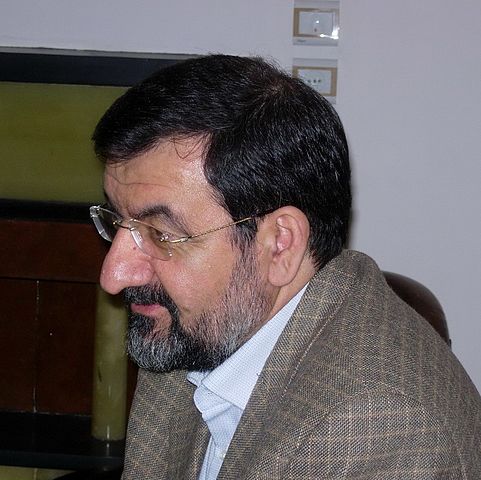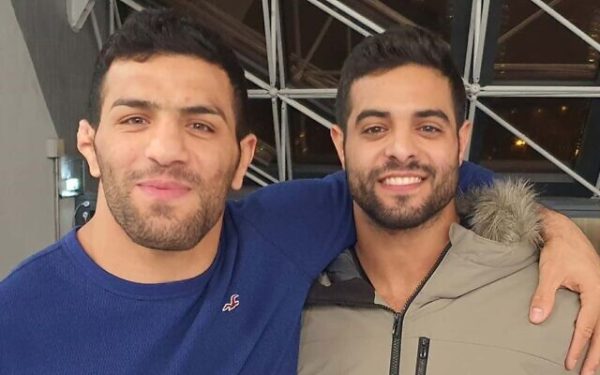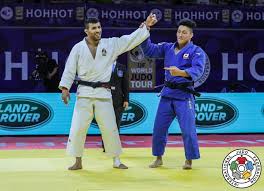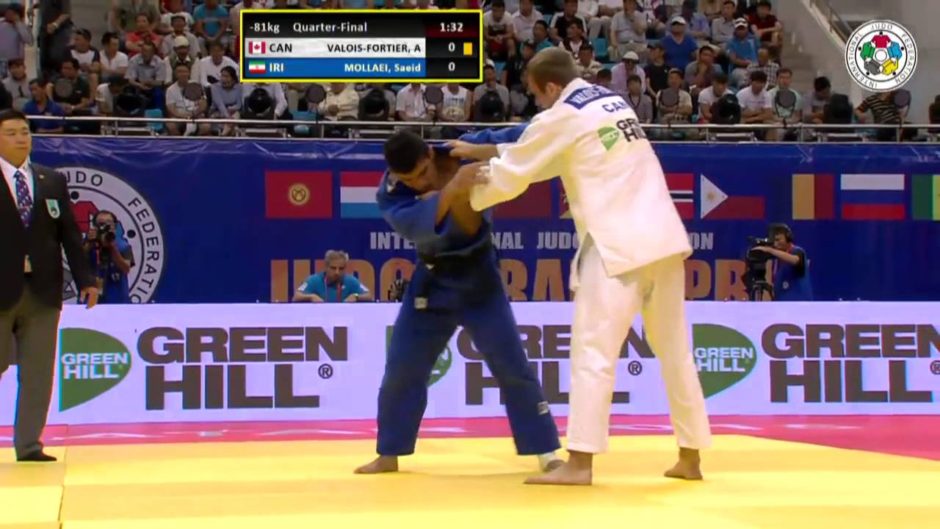Two separate stories in the February 11 edition of the Times of Israel speak volumes about the diversity of opinion in Iran regarding its arch enemy, Israel.
The headline of the first story was blood-curdling: “Top Iranian official: We’re looking for a pretext to raze Tel Aviv to the ground.” The headline over the second story was encouraging: “Israeli judoka champion makes ‘friend for life’ with Iran champ who fled the country.”
In the first piece, the former commander of Iran’s Revolutionary Guards, Mohsen Rezaei, told Al-Mayadeen, a Lebanese television stationed affiliated with Hezbollah, that the Iranian regime is looking for an excuse to destroy Tel Aviv.

Rezaei, currently an advisor to Iran’s supreme leader, Ayatollah Ali Khamenei, and secretary of a powerful organization known as the Expediency Council, boasted that Tel Aviv would be attacked in the event of a U.S. military strike on Iran. “You should have no doubt about that,” he said. “We would raze Tel Aviv to the ground for sure. We have been looking for such a pretext.”
Rezaei said that Israel is in Iran’s crosshairs because of the alleged role it played in last month’s U.S. assassination of Quds Force commander Qassem Soleimani, who was killed at Baghdad International Airport.
In the immediate aftermath of Soleimani’s death, Rezaei said, “Iran’s revenge against America … will be severe … Haifa and Israeli military centers will be included in the retaliation.”
Iranian threats of this kind against Israel have been heard many times before. So what else is new? Since the birth of the revolutionary Islamic Republic of Iran in 1979, the Iranian government has been stridently anti-Israel, in sharp contrast to the previous era when Iran and Israel enjoyed cordial and mutually beneficial relations.
Iran’s animosity toward Israel has grown tremendously due to its close alignment with Hezbollah, Hamas and Islamic Jihad and due to Israeli air raids against Iranian military facilities in Syria.
Iranian hostility to Israel is expected to remain at the same dismal level as long as the current Islamic fundamentalist regime stays in power.
The picture, however, is not entirely bleak.

Israeli judoka champion Saga Muki posted a photograph on Instagram showing him embracing his Iranian counterpart, Saeid Mollaei, at the Paris Grand Slam tournament. “Friends for life!!!” says the caption on Muki’s photograph.
In an admirable gesture of defiance last summer, Mollaei fled to Berlin after he refused to abide by a demand by the Iranian regime to lose a bout so he would not have to face Muki in the next round at a championship in Tokyo. After openly challenging his government, Mollaei said he was afraid to go home. Forced into exile, he was granted refugee status by Germany.

It’s safe to assume, I think, that Mollaei is not unique among Iranian athletes, whose only desire is to test their skills against foreign competitors, regardless of their national origin. Unfortunately, they have been cowed into submission by a totalitarian regime that brooks no dissent.
Mollaei is a shining exception to this rule. One can only hope that more Iranian athletes will follow his example and summon up the courage to challenge the stultifying status quo imposed by Tehran.
